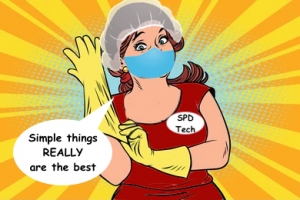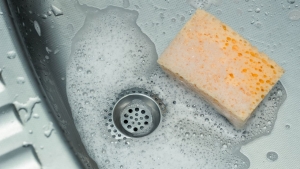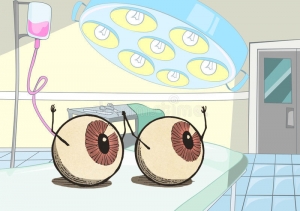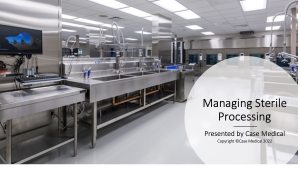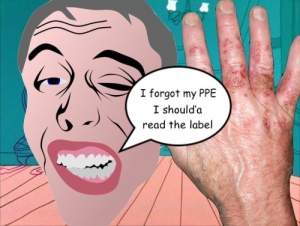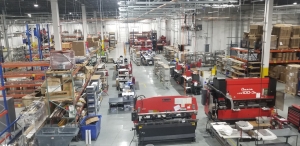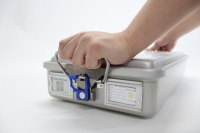It’s often said that the simple things are the best, so here are some simple suggestions…
Ever wonder why there is so much stuff in your department? I just went through my closets and got rid of the plastic bags hiding the clothes I haven’t worn in years and shoes that have collected over decades. First, I don’t wear heels anymore and knowing my age it would be downright dangerous. There are many reasons why we should simplify and make do with less at home and in the SPD. Sometimes it’s clear, like supply chain shortages and sometimes it’s because we’re questioning our toll on the environment or when we see our inventory shelves with simply too much stuff. How much of the stuff has never been used or is expired? But there are gray areas, too, holding onto stuff you think you might need or being convinced to buy something you don’t need. It’s easy to convince ourselves that “wants” are needs when we just really, really “want” something!
Perservation Past & Present
Gels can preserve tissue and bioburden under a tough to remove clear coating. Jurassic Park, the book and movie was based on the notion that mosquitos were so well persevered in amber that dinosaur DNA could be recovered after millions of years. Well, pre-cleaning gels work much the same way, after a short time a sticky skin forms on the gel, trapping the debris beneath and becoming virtually impervious to cleaning. Enter the pre-cleaning gel, easy to use, and convenient, made to prevent soil from drying onto used instruments; is it wet or just an illusion?
The dirty truth about what is lurking in a sponge
Sponges may not be the best way to pre-treat endoscopes at patient’s bedside. There are 54 billion bacterial cells on a single cubic centimeter of the average kitchen sponge. They are breeding grounds for all types of germs and bacteria. A common sponge’s spatial partitioning – the way it’s divided into different sectors of various sizes – caters to bacteria that prefer isolated environments and those that prefer to be around other organisms as well, making it the best of both worlds for microbial communities.
Understanding the Riddle of TASS
Toxic anterior segment syndrome (TASS) is an acute, noninfectious inflammation of the eye, it is a complication of cataract extraction surgery. One thing is clear there is no one cause of TASS. Did you know that there are so many possible causes of TASS that the CDC sums it up this way: “… most cases (of TASS) are attributed to 1) contaminants on surgical instruments, resulting from improper or insufficient cleaning; 2) products introduced into the eye during surgery, such as irrigating solutions or ophthalmic medications; or 3) other substances that enter the eye during or after surgery, such as topical ointments or talc from surgical gloves. So why are so many folks in charge of processing ophthalmic instruments reluctant to use enzymatic cleaners or any detergent at all?
"Managing Sterile Processing"
Join us tomorrow for an inside look at what it takes to manage an SPD, we'll discuss critical aspects of the job including; the role of the manager, effective coaching, quality assurance and continuous improvement, are some of the topics. Case Medical presents this as a free online experience, part of our ongoing commitment to better outcomes for patients and staff. There will be two sessions offered at 11:00 am EDT, and again at 6:00 pm EDT.
Are Single Use Wipes Safe?
Some are… Some aren’t. Single use wipes have become very popular for cleaning surfaces, wiping baby butts, for personal care, and throughout healthcare facilities for numerous purposes. Afterall, they are convenient, easy to use, single use, and come in a handy package.
Doing Business in a Sustainable and Non-Toxic Way
Everyday seems to bring a new natural disaster or calamity, wildfires burning up New Mexico, western reservoirs drained to their lowest levels ever, extreme weather, flooding and landslides around the globe, can it get any worse? In a word, YES, yes it can if we don’t also stop poisoning ourselves with chemicals and products toxic to both humans and the environment.
Pandemic, climate change, water shortages and now…
Increasingly, fresh water is becoming harder and harder to come by, especially in America’s Southwest. And what are folks in healthcare and industry doing to alleviate the problem?
A new 510k… And a behind the scenes peek at Case Medical
Case Medical is a vertically integrated manufacturer serving the healthcare community. Manufacturing products for instrument processing and infection prevention requires equipment, skilled professionals, access to raw materials, quality control and meeting stringent regulatory requirements. With so many different players and parts in the process, how can you be sure that your specific needs are met? One way is to be vertically integrated. Another is to have universal compatibility…
Women in healthcare…
Healthcare has long been a path toward advancement for women—from the 1950s when Virginia Apgar, developed a standard to assess newborn health, to Tu Youyou’s Nobel Prize in medicine in 2015 for her discovery of a treatment for malaria. Women account for more than half of all entry-level employees in healthcare and have made great strides in advancing to management. And Case Medical as a woman owned and run medical device manufacturer counts itself part of the advancement of women in healthcare.


